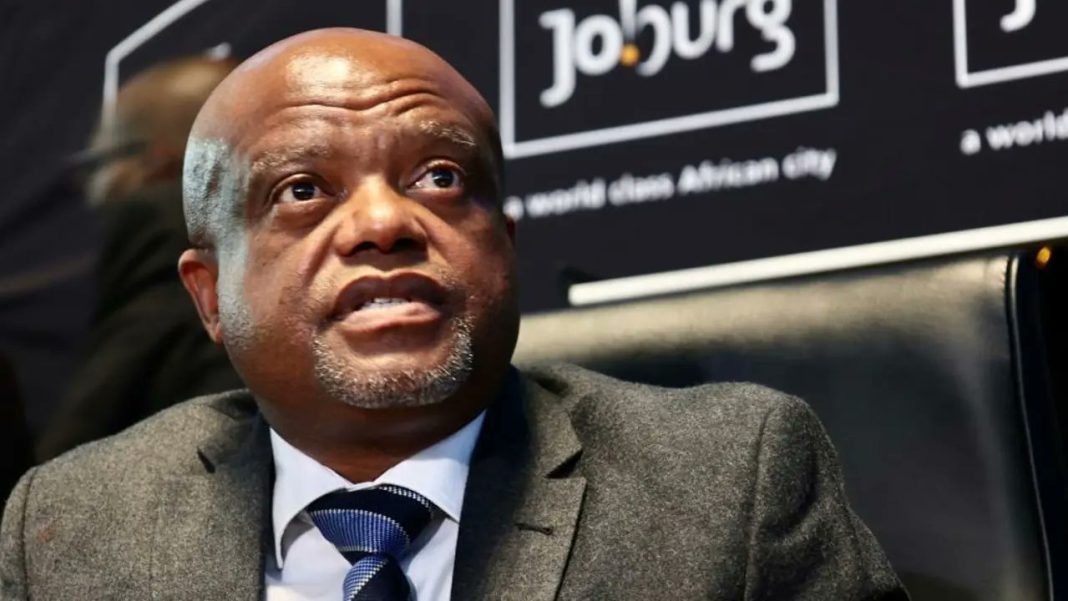By Lebone Rodah Mosima
Johannesburg Mayor Dada Morero this week set out the city’s vision to become a leader in South Africa’s renewable energy transition, calling for “energy democracy” and reform, while speaking at the City Power Energy Indaba.
Morero said South Africa’s energy landscape, “once dominated by a single utility model,” was undergoing structural change.
“The old system, built on centralised coal generation and state monopolies, is no longer fit for purpose in a society that demands decentralisation, inclusion, and sustainability,” he said.
He described the Indaba as “a national call to imagination – a collective space to rethink how power is produced, owned, distributed, and governed in South Africa”.
Johannesburg’s electricity supply remains precarious. In July this year, an investigation by Daily Maverick found “a total of 97 715 reported power outages in nine months – with more than 5 126 serious enough to take out entire suburbs at once”.
While Eskom has said it is not expecting major cuts over the summer, reliability of electricity at city level remains a concern for investors, businesses, and ratepayers.
Much of the disruption is driven by breakdowns as a result of ageing and poorly maintained infrastructure, theft, corruption, and illegal connections.
“What we face today is not merely an energy crisis, but a crisis of imagination. The solution lies not in managing decline, but in governing transformation — from energy scarcity to energy democracy,” said Morero.
Under “energy democracy”, Morero said Johannesburg aims to build a decentralised ecosystem of public, private, and community energy producers. Every citizen, he said, should be able to generate and trade clean power while ensuring that the benefits of the energy transition reach historically excluded communities.
“South Africa’s commitment to achieving net-zero emissions by 2050 cannot be delivered through rhetoric — it requires a new kind of partnership among the state, the market, and society,” he said.
He said that for more than a decade, public debate on energy had been dominated by crisis narratives around load-shedding, debt, and emergency procurement.
To address these, he said, his administration was implementing coordinated plans with national and municipal entities, improving regulatory frameworks, enabling public-private partnerships, and attracting renewable energy investments.
He said that to achieve transformation at a societal scale, City Power must evolve from a conventional electricity distributor into a “public innovation platform — a catalyst for the low-carbon economy”.
“This is how Johannesburg becomes the proof point — showing how local entities can drive systemic transformation across South Africa,” he said.
Morero added that energy reform must be integrated with broader development goals, including spatial planning, industrial policy, and skills development.
Johannesburg’s Energy and Climate Action Framework, he said, aligns with the national Just Energy Transition Investment Plan and the National Infrastructure Plan 2050.
Through the Gauteng Energy War Room, the city works with the provincial government, the Presidency, and financiers such as the Development Bank of Southern Africa (DBSA) to “coordinate investments, resolve regulatory bottlenecks, and accelerate the rollout of renewable energy”.
“As we build this low-carbon economy, we must also create a skills revolution — ensuring that women and youth are not spectators, but participants in the new energy economy,” Morero said.
He said the city is opening pathways for employment in solar maintenance, digital energy analytics, and electric vehicle technology through partnerships with TVET colleges, training academies, andexpanded public works green programmes.
“We must move beyond short-term fixes and toward structural reform — a national social contract that redefines energy as a public good rather than a private commodity,” he said, adding that this required “rebuilding trust in public institutions, rethinking ownership models, and empowering local governments to co-produce solutions”.
Morero said the city’s long-term vision under Net-Zero 2050 and Beyond involved every province and city generating part of its own renewable energy.
He said that Johannesburg had already developed five solar farms, which was proof that the city was “on the right path to reclaiming its status as the City of Firsts”.
INSIDE METROS

